Discover Microbe Talk
Microbe Talk

Microbe Talk
Author: Microbiology Society
Subscribed: 814Played: 12,092Subscribe
Share
© Copyright 2025 Microbiology Society
Description
Microbe Talk is a podcast from the Microbiology Society, interviewing researchers about bacteria, viruses and parasites. We are the largest microbiology society in Europe, covering all aspects of microbial science.
180 Episodes
Reverse
In this episode of Microbe Talk, we meet some members of staff at the Microbiology Society to reflect on 2025 and look at ways to get involved in 2026.
The relationship between humans and parasites is changing along with the climate crisis, globalisation, and innovations in science. In this month's Microbe Talk, we chat to expert Kinga Kowalewska-Grochowska at the University of Alberta, Canada, about the evolutions in how we look at parasites, where they are found, and what the future holds for diagnosing and treating these illnesses. This follows Kowalewska-Grochowska's latest review of the same topic published in the Journal of Medical Microbiology.If you’d like to read the paper, you can do so by following this link. Stay tuned to the Microbiology Society socials to be the first to hear about exciting new research in the world of microbiology.You can download a full, auto generated transcript of the podcast here.
In 2019, a mysterious shape appeared on a petri dish in a Birmingham lab. Its surprising appearance, similar to noodles, intrigued researchers to find out more about it. They consulted other scientists online at the time, which sparked an idea to start an online club dedicated to sharing laboratory contaminants.Now, the team finally publish their research characterising this contaminant as a new species of bacteria, Kocuria rhizophila, in our journal Microbial Genomics. Researchers Rob Moran and Greg McCallum join Communications and Media Officer Lilly Tozer to talk about their journey from discovery to publish.If you’d like to read the paper, you can do so by following this link: microb.io/47L8aoYStay tuned to the Microbiology Society socials to be the first to hear about exciting new research in the world of microbiology.You can download a full, auto generated transcript of the podcast here: microb.io/3J6DUf3
In this episode of Microbe Talk, Clare talks to An Bui from the Department of Psychiatry at the University of Alberta about their paper published in Microbiology, the first systematic review of the potential effects of psychotropics (the drugs used to treat bipolar disorder) on the gut microbiome of treated and untreated bipolar individuals.A full transcript of this episode is available on our website.
In January 2024, Aline Metris and Lindsay Hall hosted an academic-industry workshop at the Microbiology Society offices to discuss the potential long-term implications of microbiome perturbations. Since then, they’ve published a comprehensive summary of the findings from the workshop in Microbial Genomics. We invited them back to the Microbiology Society offices to chat with Clare about their experiences hosting the workshop and share their insights from the paper. If you’d like to read the review in Microbial Genomics you can do so by following this link. Stay tuned to the Microbiology Society socials to be the first to hear about Lindsay and Aline’s further work and our other projects on the microbiome. You can also read a full auto generated transcript of the podcast on our website here.
In this episode, Adam discovers how two microbiologists from opposite sides of the world formed a collaboration and mentorship that has greatly benefited them both.When in-person classes were suspended during the 2020 lockdown, Akpan Friday, a student from Nigeria, reached out on social media seeking support to continue his and his classmates’ learning. Dr Beth Mills from the University of Edinburgh responded to the call and began delivering free online lectures to the students.Although they have yet to meet in person, their relationship has developed into a mentor–mentee partnership, and both were delighted to share their story.Music: Instant Crush – Corbyn KitesYou can download a full transcript of the podcast by visiting our website here.
We're in Liverpool this week, hosting our annual conference and meeting our members, collaborators and authors.We know that there will be a lot of exciting conversations, interesting presentations and vital networking opportunities happening all over the and wanted to make sure you could keep the excitement going even after the events of the day have finished.So, across the four days of annual conference we'll be bringing you mini episodes of Microbe Talk, each featuring a presenter from the programme.We’re closing up with a chat with Andrew Spicer who is looking at the algae Chlorella in a new light. His invited talk ‘Reimagining Chlorella as a food and beverage ingredient suited for everyday foods’ was on Tuesday afternoon at the Annual Conference in the Microbes to meals session.
We're in Liverpool this week, hosting our annual conference and meeting our members, collaborators and authors.We know that there will be a lot of exciting conversations, interesting presentations and vital networking opportunities happening all over the and wanted to make sure you could keep the excitement going even after the events of the day have finished.So, across the four days of annual conference we'll be bringing you mini episodes of Microbe Talk, each featuring a presenter from the programme.For the penultimate episode of our miniseries for annual conference Clare spoke to Guilherme Borba Neuman about his research titled ‘Characterizing Retroviral Integrations and Their Impact on Koala Populations: Implications for Health and Conservation’ which he presented earlier today at our Annual Conference in Liverpool. Listen to find out how Guilherme is able to see the results of his research come to fruition in captive Koala populations.
We're in Liverpool this week, hosting our annual conference and meeting our members, collaborators and authors.We know that there will be a lot of exciting conversations, interesting presentations and vital networking opportunities happening all over the and wanted to make sure you could keep the excitement going even after the events of the day have finished.So, across the four days of annual conference we'll be bringing you mini episodes of Microbe Talk, each featuring a presenter from the programme.For the second episode of our miniseries for Annual Conference Clare spoke to Elizabeth O’Gorman about her research titled ‘Adaptation of Campylobacter to Sodium Chloride Alters Phenotypes Associated with Human Disease’ which she will be presenting at the infection forum tomorrow afternoon. Elizabeth and Clare chat about food safety and how consumer trends might be altering the of bacteria on our meat.
We're in Liverpool this week, hosting our annual conference and meeting our members, collaborators and authors.We know that there will be a lot of exciting conversations, interesting presentations and vital networking opportunities happening all over the and wanted to make sure you could keep the excitement going even after the events of the day have finished.So, across the four days of annual conference we'll be bringing you mini episodes of Microbe Talk, each featuring a presenter from the programme.For the first of our mini-series, Clare spoke to Phoebe Crossley who will be presenting her research 'Multi-omic analysis of the vaginal microenvironment reveals mechanisms of vulvovaginal and sexual health symptoms in women with benign gynaecological conditions' at the Urogenital Microbes in Health and Disease session tomorrow afternoon.
In this episode of Microbe Talk Clare speaks to Judy Li, author on the latest Microbial Primer: Microbiome and thermal tolerance – a new frontier in climate resilience? Clare and Judy chat about the paper, the relatively new field of study and the possible mechanisms of microbes buffering organisms against temperature changes.If you'd like to Judy's paper, published in Microbiology you can do so here. You can also download a full transcript of the podcast on our website.Music: Documentary_Tidal by Comma-Media via Pixabay.
In this episode, Adam talks to Dr Georgios Efthimiou from the University of Hull. Georgios has created a nationwide ‘spooky’ short story competition called Coccus Pocus. This project links outreach and Halloween with microbiology. This creative competition has had a clear impact on 12 – 18-year-olds who find the competition a good way to discover an interest in microbiology and have had a lot of fun writing the stories. Join Adam as he learns more about this Microbiology Society-funded project (and you may hear from a few society staff members reading some of this year's winners along the way).
For the first episode of Microbe Talk in 2025, we’re bringing you something fascinating and a bit different— non-communicable diseases. In this special episode, Clare chats with Professor John Tregoning, a Professor in Vaccine Immunology, about his new book, 'Live Forever? A Curious Scientist’s Guide to Wellness, Ageing and Death'. Clare and John chat about why he's writing about non-communicable diseases, the processes behind his book and any public engagement advice he'd give to our community.Find out where you can buy a copy of Johns book by clicking here. You can also download a transcript of the podcast from our website here. Johns other work can be found here. Music by Yrii Semchyshyn from Pixabay
In this episode of Microbe Talk Clare spoke to Adam Aspinall who's Senior Director in the Access and Product Management team at Medicines for Malaria Venture. They discuss Malaria, antimalarial drug resistance and the work that Medicines for Malaria Venture is doing to support new drug discovery.If you'd like to find out more about the Microbiology Society's Knocking Out AMR project, you can do so here.If you'd like to find out more about the work that Medicines for Malaria do, take a look at their resources here: MMV website: http://mmv.orgSevere Malaria Observatory : severemalaria.orgMusic: Blue Dot Sessions - Blue Latex
For this episode of Microbe Talk Clare is joined by Dr Sanjay Patel, a paediatric infectious disease and immunology consultant at Southampton Children's Hospital and the National Clinical Advisor for Paediatric Antimicrobial Stewardship at NHS England. Clare and Sanjay discuss paediatric AMR, why it's often overlooked and how Sanjay and his colleagues from clinical, research and policy backgrounds are taking action. If you'd like to learn more about research into antimicrobial resistance in neonates, take a look at this paper in Journal of Medical Microbiology.You can find details of how to get involved with Knocking Out AMR here.The resources and initiatives Sanjay mentioned are below:
National empirical antimicrobial guidelines
The common infection clinical pathways, the IV to oral switch decision aid
The common infection paediatric pathways
Music: Inspiring Science Technology - Comma Media from Pixabay
The month of October is #BlackHistoryMonth and this year we caught up with Society Champion, Dr Amaka Awayne, on our latest episode of the Microbe Talk podcast. Dr Amaka discusses her insightful experiences as a Black person working in science, as well as how she is contributing to Black History Month this year.Find out how to get more involved with Society activities via our Get Involved webpage: microb.io/4f18YYdMusic by The_Mountain from Pixabay
In aid of space week Clare is looking up into the sky with Dr Katherine Baxter about the exciting field of space microbiology. They chat about how research in space could help with problems back on earth, how microbes behave in space and how they might be key to survival in future space travel.The details of the ways to get involved are below. If you're in need of even more space content, keep your eye out for the next edition of Microbiology Today.The NASA Open Science Data Repository: awg.osdr.space/The SOLSTICE citizen science project: www.nasa.gov/osdr-working-groups-citizen-science/.Music by drmseq from Pixabay
Clare is back with another episode of Microbe Talk and this time she’s investigating the topic of Microbial Forensics with Dr Tim Inglis from the University of Western Australia. Tim is the Editor-in-Chief of the Society’s Journal of Medical Microbiology where he published his review on the topic: ‘A systematic approach to microbial forensics’. You can read a full transcript of this podcast on our website.Music by Denys Kyshcuk from Pixabay.
For this episode of Microbe Talk Clare was joined by the wonderful Gwyn Dahlquist-Axe and Francesca Standeven, archaeological scientists who study AMR and ancient human oral microbiomes. They're on the podcast to discuss their review into diet, disease and antibiotic resistance from ancient human oral microbiomes published in Microbial Genomics.You can read their review 'Inferring diet, disease and antibiotic resistance from ancient human oral microbiomes' here. If you'd like to keep up with Francesca and Gwyn's research their Twitter (X) handles are @GDahlquistAxe and @fstandeven193 You can also read a full transcript of the podcast on our website.Music by Denys Kyshchuk from Pixabay
Yesterday, we released our vision statement for Knocking Out Antimicrobial Resistance, the Society's new cross-disciplinary project. It outlined the key issues faced by the AMR community: the lack of understanding of the urgency of the crisis, a fragmented AMR landscape and a broken innovation pipelineSo for this special Knocking Out AMR episode of Microbe Talk Clare spoke to Professor Paul Hoskisson to pick his brain on his latest venture: a one million pound project to use food by-products make antimicrobial production more cost effective and sustainable.The Microbiology Society's Knocking Out AMR Vision statement can be found on our website here.Paul's Socials:Bluesky @paulhoskisson.bsky.socialTwitter @PaulHoskissonInstagram @paulhoskissonMusic by Yurii Semchyshyn from PixabayYou can read a full transcript of this podcast on our website.


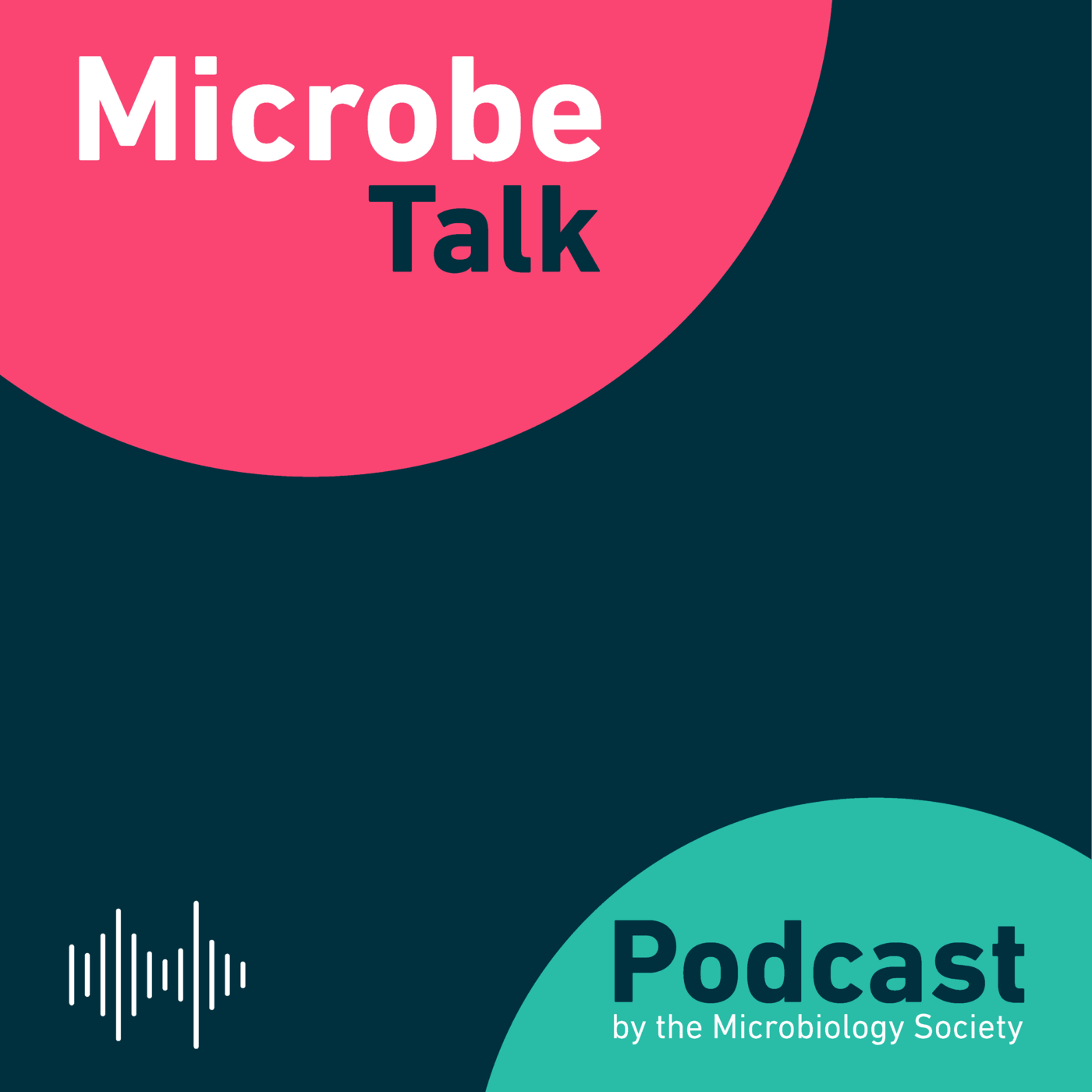
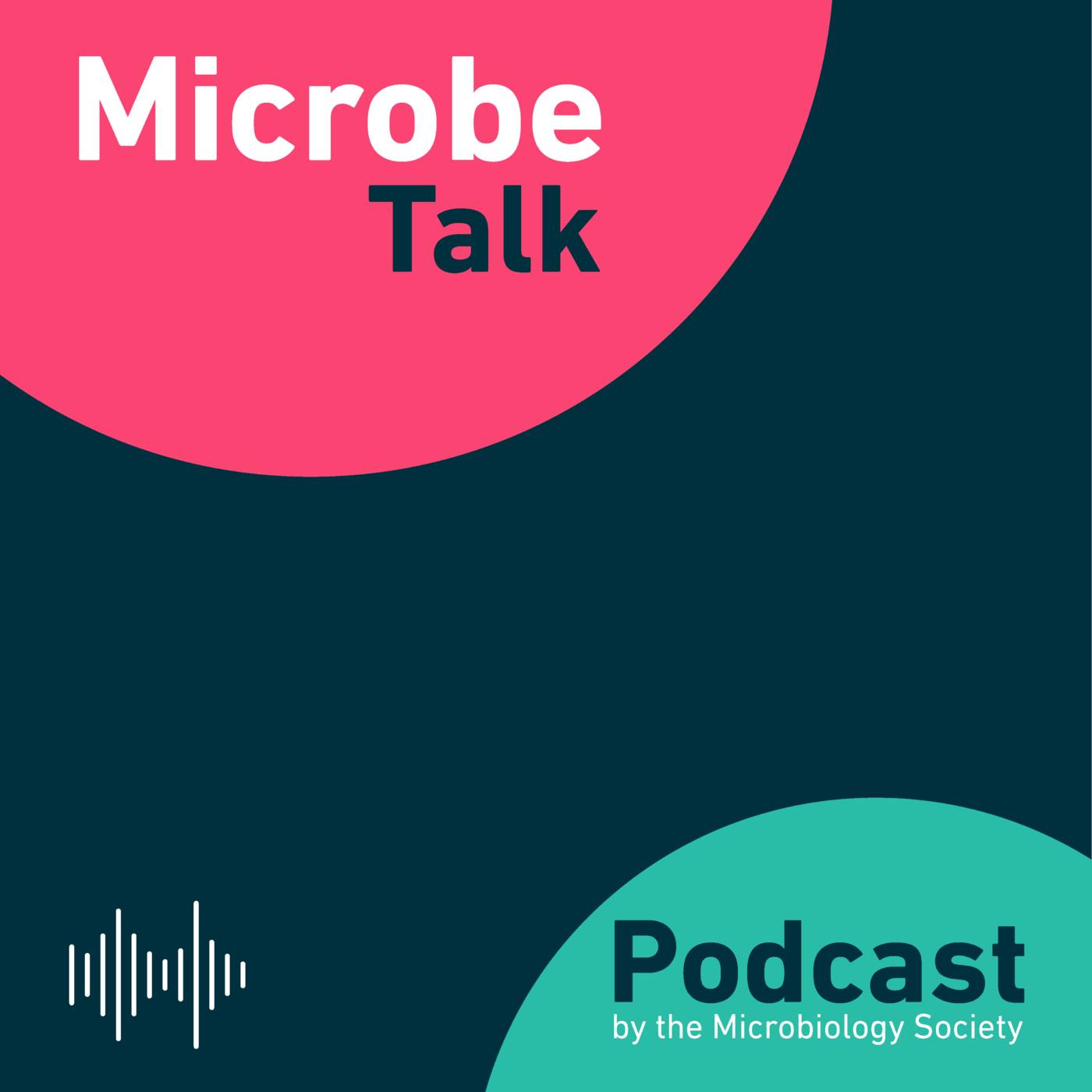
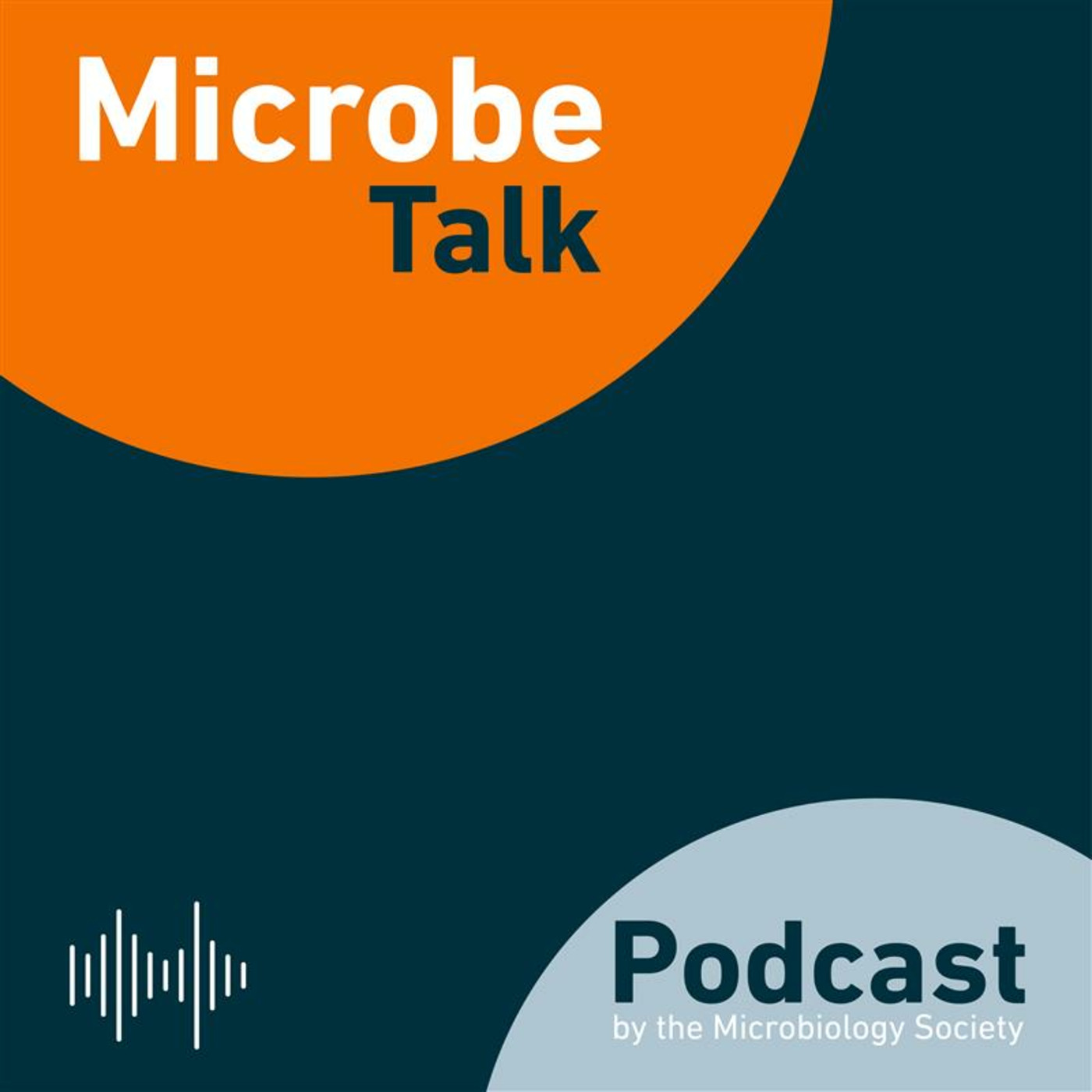
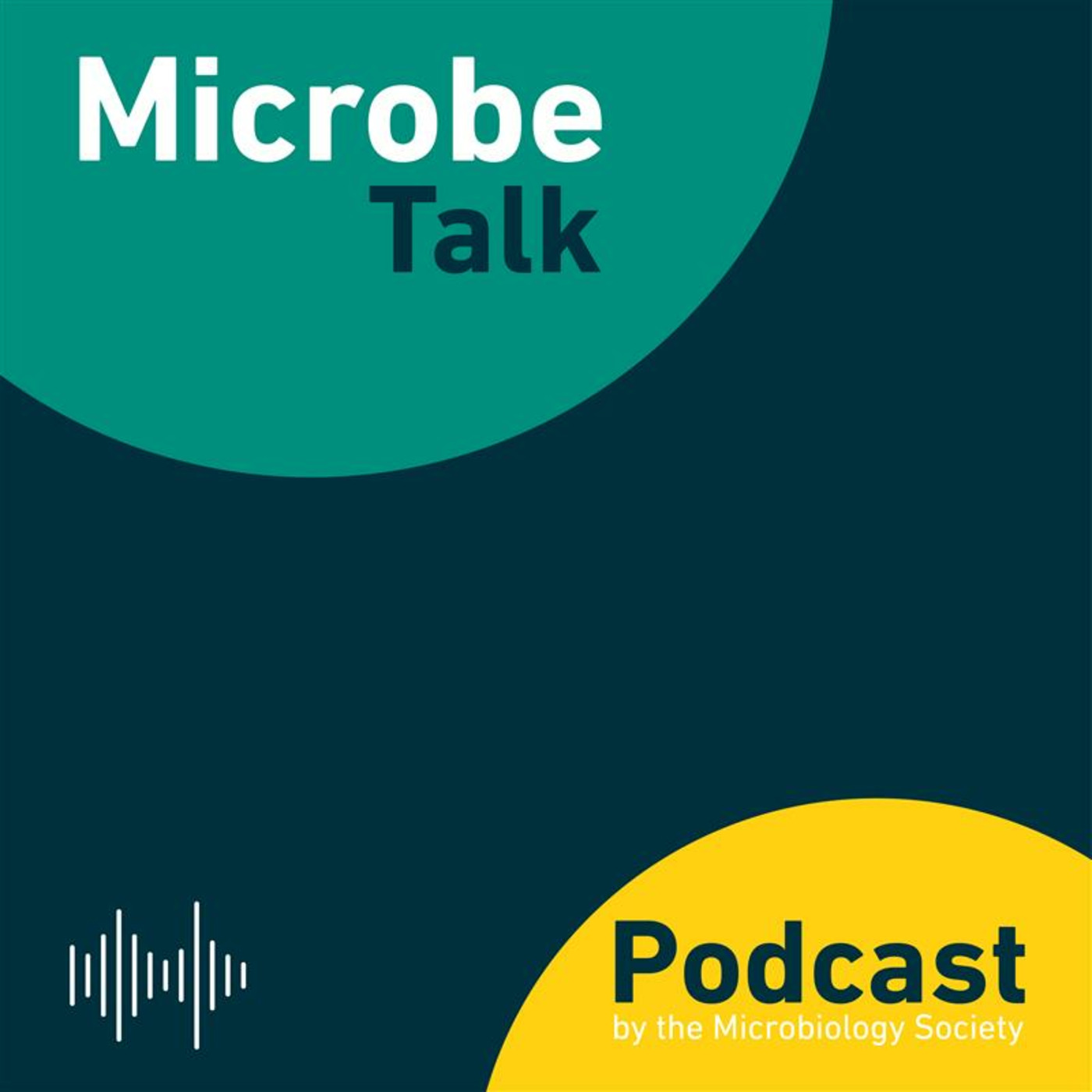
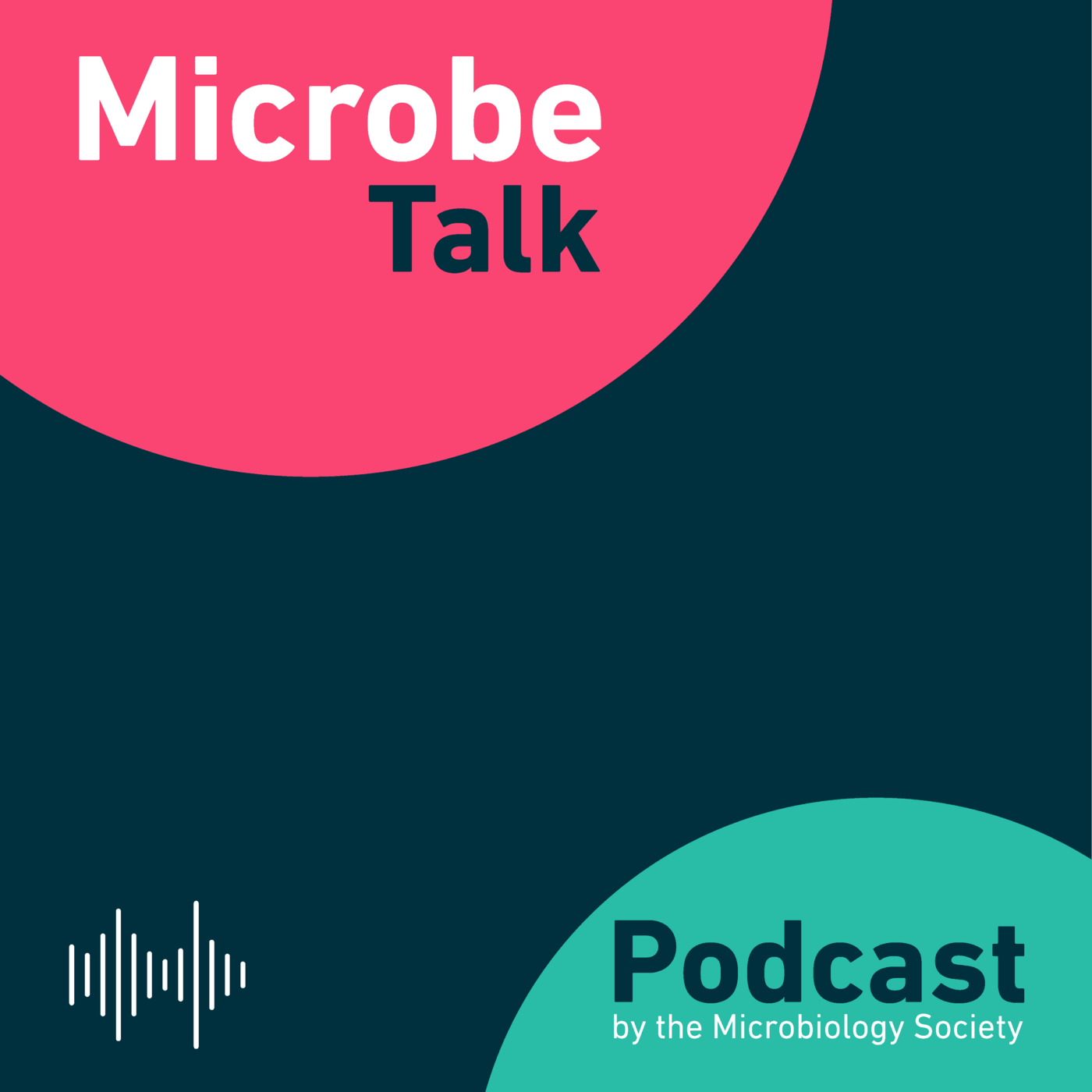



exelant